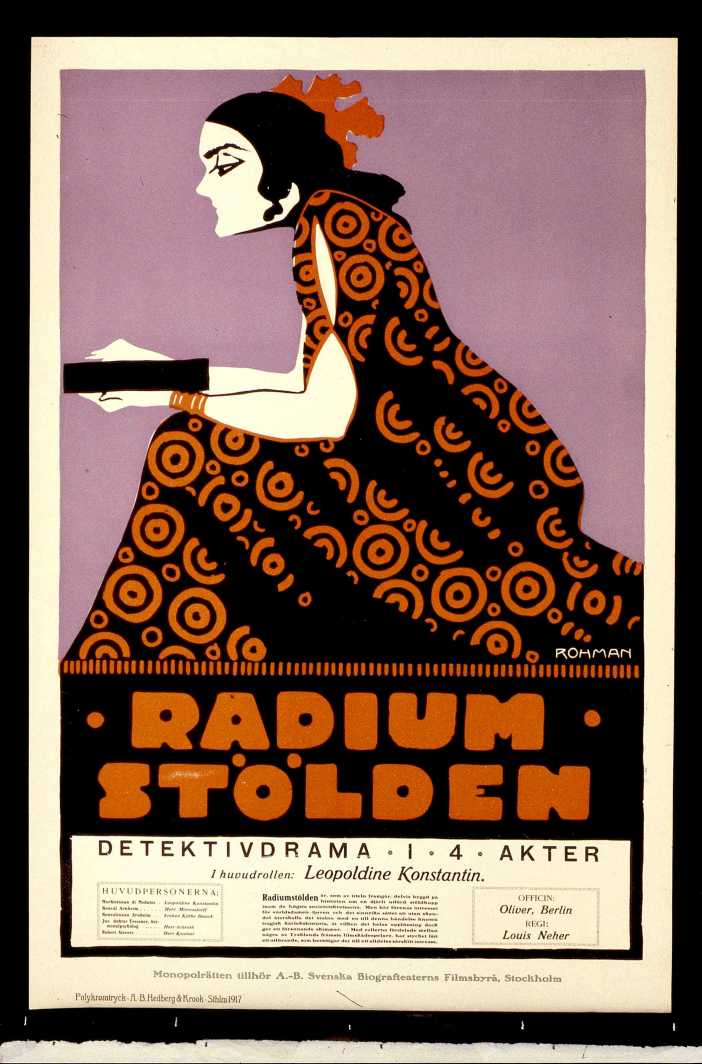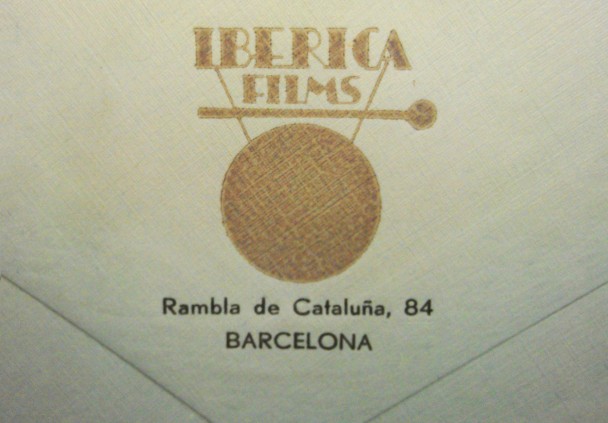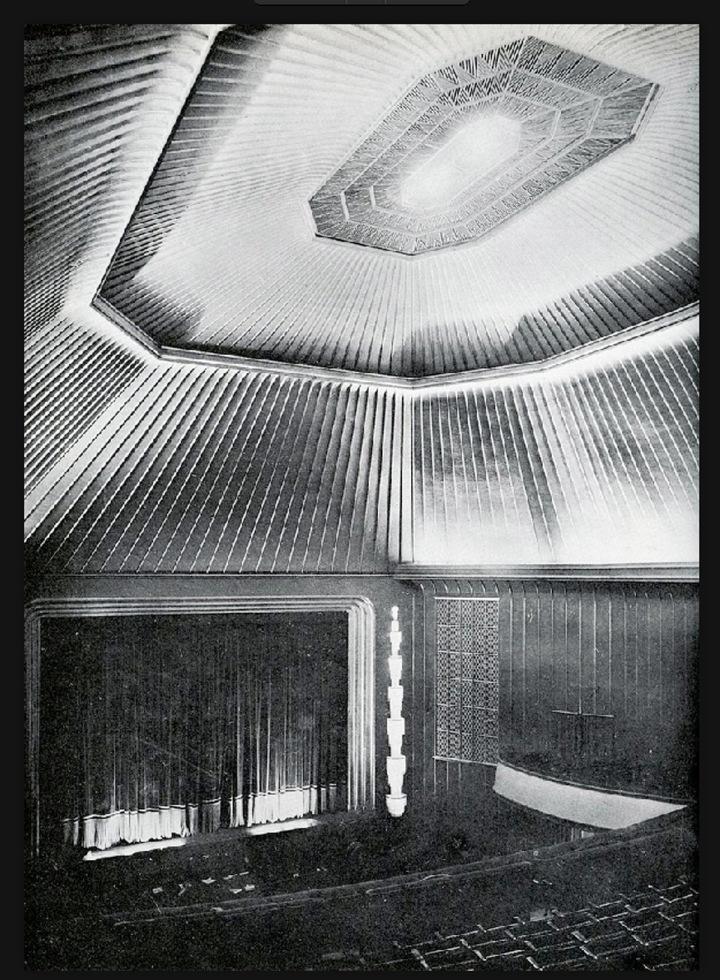 In celebration of the 100th anniversary of the Oliver-Film Company, it gives us great pleasure to announce a special screening of two rare “Oliver films”.Now fully restored to its original condition, IM REICH DER ZWERGE (1916) will be shown at the Van City Theatre under the auspices of the Vancouver International Film Festival, Friday June. 5th. Stay tuned for more details…
In celebration of the 100th anniversary of the Oliver-Film Company, it gives us great pleasure to announce a special screening of two rare “Oliver films”.Now fully restored to its original condition, IM REICH DER ZWERGE (1916) will be shown at the Van City Theatre under the auspices of the Vancouver International Film Festival, Friday June. 5th. Stay tuned for more details…
UFA Man
Work In Progress-March, 2015
Here’s a test trailer we’re working on for UFA MAN. Bravo to everyone who has contributed their valuable time and imagination! We’ve travelled the world to capture what you see before you but still have a long way to go. You, too can play a vital role in helping us complete this project. Stay tuned for more information in the days ahead…UFA MAN needs you!
Big News Is On The Way…
Hamburg 1927
The Washer Girl of His Highness (1917)
 Das Wäschermädel Seiner Durchlaucht (1917) directed by Danny Kaden starring Erika Glässner and co-starring Gustav Botz (who would go on to play “Professor Sievers” in Nosferatu).
Das Wäschermädel Seiner Durchlaucht (1917) directed by Danny Kaden starring Erika Glässner and co-starring Gustav Botz (who would go on to play “Professor Sievers” in Nosferatu).
Erika Glässner began her career as a dancer before her film debut. Often playing the role of a “Backfisch”, or saucy young seductress, Erika Glässner enjoyed a long career in German film. In 1959,at the age of sixty, she committed suicide after the death of her husband.
Stay Tuned…
Something big is about to happen. Keep your eyes open for a new and exciting development…
The Deluded Sausage Maker
Guido der Erste oder Der getäuschter Wurstfabrikant -1915
Director: Paul Otto. Produced by David Oliver
A deranged sausage manufacturer (played by the great Berlin comedian Guido Thielscher) decides to build a castle dedicated to the greater glory of the pig. Only one reel from the original three has survived. Discovered in the National Library of Norway in Moh I Rana.
Saint Moritz-1925
The Oliver Lion…
An Early Industrial Film…The Cecilie Mine (1917)
New Discovery. DER RADIUM RAUB (1916)
This beautiful poster by the great graphic illustrator Eric Rohman was recently discovered within the archives of the Swedish Film Institute. It was designed for the Swedish release of the 1916 Oliver-Film DER RADIUMRAUB (THE X-RAY HEIST) and featured the celebrated Italian dancer Rita Sachetto in a starring role as a glamorous cat burglar. Directed by Louis Neher, previously known for his work on Oliver-Film’s IM REICH DER ZWERGE and DIE NIXENKÖNIGIN,
If only we could discover more about these individuals! Any leads or information would be deeply appreciated!
Oliver FIlm Logo
Screening of “Im Reich der Zwerge”
Produced by David Oliver in 1916, Louis Neher’s “Im Reich der Zwerge” is a hallucinatory experience. Its cutting-edge trick photography will takes audiences deep underground to a subterranean world where a young girl must plead her case before the king of the elves. This charming piece of fairy-tale surrealism was discovered in the archives of the EYE Film Institute in Amsterdam. This early Oliver production incorporates every device that would have been at the disposal of the filmmaker of 1916.
Unseen for 99 years, Im Reich Der Zwerge will be screened on Sunday December 14 in Vancouver, BC accompanied by a live orchestra.
The Lost Career of David Oliver
UCLA Film & Television Archive Director Jan-Christopher Horak’s observations on the life of David Oliver
As a film historian I have been sustained by and identified with research into the exile of German-speaking filmmakers from Berlin and Vienna after Hitler’s ascension to power in 1933. Beginning with my Louis B. Mayer Foundation oral history and my dissertation, as well as through numerous subsequent articles, these mostly Jewish refugees, estimated to number more than 1500, have become a part of my life. Thus, when Mark Oliver, a Canadian actor-producer, called me last Fall to ask about his grand-father, David Oliver, it was as if a long-lost cousin had suddenly appeared on my doorstep.
I had written about David Oliver as long ago as my master’s thesis on the founding of the UFA film company, and I knew that he had been one of the pioneers of the German film industry, but I had lost his trail in the 1920s and had no idea that he was indeed one of “my émigrés,” as my wife likes to call them. Just a year ago at the Berlin Film Festival, I had finally caught up with Dona Frasquita (1934), a Spanish film directed by an equipe of German exiles, including director Hans Behrendt who would be murdered in Auschwitz a decade later, but I had no idea that David Oliver had founded the film’s production company, Iberica Films. Last week, Mark Oliver was in town to interview me for his documentary UFA MAN…The Story of Movie Pioneer David Oliver. Mark, himself, had only discovered the nature of his grandfather’s career after the death of his own father, when he found several boxes of clippings and photographs in his father’s estate, learning for the first time not only of David Oliver’s illustrious accomplishments, but also that he was of Jewish heritage. When Mark asked me how it could have happened that a man of Oliver’s importance had simply fallen out of film history, I explained that the chasm of 1933 had swallowed up many in the film industry whose names were not listed in film production credits: the front office men, the distributors, the cinema owners, the publicity women, the agents, etc. Their histories have yet to be written.
David Oliver was born in Galicia in 1880, and like many trying to escape the periodic pogroms in the Shetl, had emigrated West and Germanized himself, apparently founding a cinema in Bremen as early as 1905. Bremerhaven was the main port of embarkation for Eastern European Jews to America, and Oliver may have intended to travel on, but discovered a business opportunity in nickelodeons, as Carl Laemmle and L.B. Mayer would around the same time in America. Ten years later, David was the owner of Oliver Film, Berlin, and the chief representative in Berlin for the Nordisk Film Co., one of Europe’s largest film companies, which controlled numerous first run film theaters on the continent. Oliver Film produced as many as 65 films a year, many of them short comedies with local talent, like Dorrit Wechsler. In November 1917, David Oliver became a founding member of the Board of the giant UFA Film combine, after Nordisk merged with several other large German film companies and the blessings of the German Military High Command of General Ludendorff, creating one of the first vertically and horizontally structured film companies in the world, encompassing production, distribution and exhibition. At a fantastic salary of 44,000 German Marks a year, Oliver was named chief of the company’s huge cinema chain. His name turns up again in 1929 as one of the builders of Europe’s largest movie palace in Hamburg, the magnificent UFA-Palast with 2,667 seats.
Sometime after April 1, 1933, when the UFA fired 100% of those employees who had been identified by the Nazis as Jewish, David Oliver emigrated to Spain, where he founded Iberica Films, and managed to produce several titles, before Generalissimo Franco and the Spanish Civil War drove him into exile yet again. He emigrated to London with his family, where he helped Alexander Korda, himself an émigré, found Denham Studios, the Bauhaus design by Walter Gropius destined to become the most modern studio facility the U.K. had to offer, where such classics as The Return of the Scarlet Pimpernel (1937), The Four Feathers(1939), and The Thief of Bagdad (1940) were produced. Oliver became managing director of the Denham Studios Laboratories, which processed those and countless other films for English studios. He remained in that position until his death in November 1947 at the age of 67. Despite his long association with Korda, who had single-handedly revitalized the dormant film industry in the United Kingdom, David Oliver’s name is not to be found in a single book on British cinema.
Verbannung
Barcelona-based Jewish art collective Mozaika posted a trailer for their upcoming film “Verbannung: L’exili jueu a Barcelona (1933-1945).” It features a team of nocturnal sign posters sharing portraits of Jewish exiles who arrived in Spain during the Nazi occupation. David Oliver’s image is pasted up on the streets of Barcelona, honouring his arrival to the city in September1933. “Verbannung” deals with the unexplored lives and history of Oliver and nine other Jewish intellectuals, writers and film makers. Mozaika is a multidisciplinary organization celebrating Jewish culture.
David Oliver at Denham Studios
 Alexander Korda and Denham Studios
Alexander Korda and Denham Studios
1936-The new Spanish government under General Franco make future Ibérica film projects impossible and the company is dissolved.
British Film baron Alexander Korda now offered Oliver a position at Korda’s London Films, as head of Denham Studios film laboratories. By coincidence, Korda had also been the producer of Catherine the Great, the same film whose premiere at Oliver’s Capitol theatre in Berlin had triggered the bomb attack on Oliver three years before.
All that remains today of the once-mighty Denham Studios is the film lab commissioned and built by David Oliver. It is one of only five buildings in Britain to have been designed by Bauhaus architect Walter Gropius.
It is protected by Britain’s National Trust and can never be torn down.
Plans are now under way to convert the old lab building into luxurious condominiums.
The Story of Ibérica Films
 A group of Jewish film professionals flee Nazi Germany for a new life in Spain. Determined to continue with their careers, David Oliver and director cum theatre manager Kurt-Louis Flatau form “Ibérica Films” in Barcelona, 1934. The expertise they bring with them will leave an indelible mark on Spanish Cinema.
A group of Jewish film professionals flee Nazi Germany for a new life in Spain. Determined to continue with their careers, David Oliver and director cum theatre manager Kurt-Louis Flatau form “Ibérica Films” in Barcelona, 1934. The expertise they bring with them will leave an indelible mark on Spanish Cinema.


A production still from the Ibérica Films production Doña Francisquita (1935). My grandmother (and production chief) Edith Oliver sits in the foreground . Having to work on shoestring budgets forced Ibérica Films to operate very much as a family affair. Directly behind her stands the film’s director, Hans Behrendt. Both are dressed in the ubiquitous UFA work uniform…a white lab coat.
Bomb on Unter den Linden-1934
Theatre Owner
International Producer

Ibérica Films operated as a sort of Spanish “underground railroad” for Jewish film makers on the run from Nazi Germany.

Produced in affiliation with Sascha Films (Vienna)

In 1936, Ibérica is dissolved under Franco, and Oliver moves to England to work with Alexander Korda at Denham Studios. Oliver commissioned and built Denham’s film laboratories, a Bauhaus building now protected by Britain’s National Trust.



 My father, Herbert Oliver with his pet lion cub, circa 1930. It was brought back from Namibia as a gift from his Uncle Arnold and lived in the Oliver house at Königin Augustastrasse until he got a bit too rambunctious and had to be sent off to the Berlin zoo. Whatever happened to him I wonder?
My father, Herbert Oliver with his pet lion cub, circa 1930. It was brought back from Namibia as a gift from his Uncle Arnold and lived in the Oliver house at Königin Augustastrasse until he got a bit too rambunctious and had to be sent off to the Berlin zoo. Whatever happened to him I wonder?












